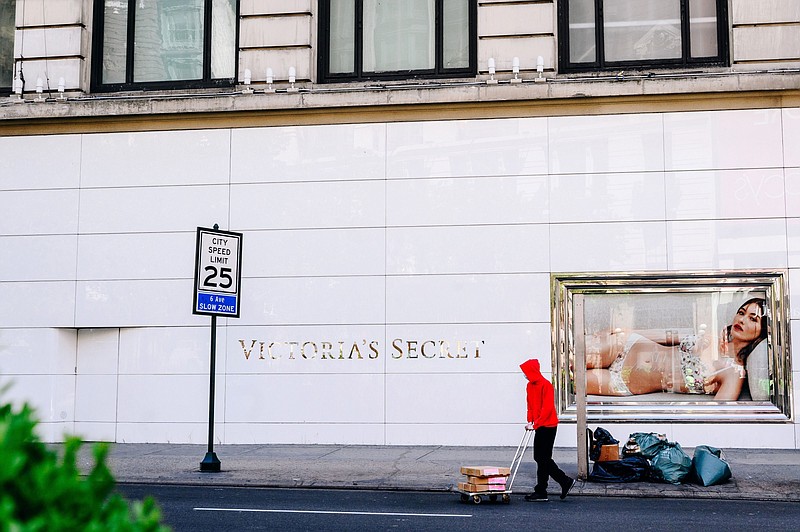L Brands -- which had been considering either a split or sale for its Victoria's Secret chain -- has opted to go the spinoff route, announcing on Tuesday plans to separate into two publicly traded companies.
The transaction, which is expected to be completed in August, will result in two independent retailers: Bath & Body Works and Victoria's Secret. The split will let the separate companies better focus on growth and give more financial flexibility in a changing retail landscape, L Brands said.
Victoria's Secret was to be sold to Sycamore Partners last year for about $525 million, but the private-equity firm sued to get out of the deal citing the coronavirus pandemic. At that point, Victoria's Secret was forced to close stores and sales, which had been falling as the brand fell out of favor.
L Brands didn't give a valuation for the companies in its Tuesday statement, but it did confirm that it had received interest from and held discussions with several potential buyers, which it evaluated with its financial advisers, Goldman Sachs and JPMorgan. A spokesperson for L Brands didn't comment on the reported valuation.
The company has been considering splitting the two chains for more than a year. At the time of the original announcement, the rationale was clear: Bath & Body works was booming, while Victoria's Secret sales had been slipping as consumer taste for bras and lingerie shifted and competitors focused on comfort and a wider array of sizes and swooped in.
In February 2020, just before the pandemic, L Brands struck the deal with Sycamore Partners to sell a majority stake in the company, which would have taken the lingerie maker out of the public market and spotlight, giving it space and privacy to revive the brand. It also would have given the company an opportunity to focus on its bright spot: Bath & Body Works. During the pandemic, it became even more clear that the soap and lotion line was a top performer for the portfolio.
But Victoria's Secret has been on an upward trajectory since then. In the third and fourth quarters, adjusted operating income increased more than 300%, the company said Tuesday. L Brands also reported preliminary first-quarter results that beat estimates.
"In the last ten months, we have made significant progress in the turnaround of the Victoria's Secret business, implementing merchandise and marketing initiatives to drive top line growth, as well as executing on a series of cost reduction actions, which together have dramatically increased profitability," Sarah Nash, chairman of L Brands, said in a statement. "As a result of these efforts, Victoria's Secret is now well-positioned to operate as a standalone, public company."
Andrew Meslow, who is the current chief executive officer of L Brands, will continue in that position and lead the soap and fragrance chain after the spinoff. Martin Waters, current CEO of Victoria's Secret, still will run that brand once it's a standalone.
The transaction will involve a tax-free distribution of shares.
Victoria's Secret was founded by the late Roy Larson Raymond in the late 1970s after he felt embarrassed about purchasing lingerie for his wife. Les Wexner, founder of the then Limited Stores Inc., purchased Victoria's Secret in 1982 and turned it into a powerful retail force. By the mid-1990s, Victoria's Secret lit up runways and later filled the internet with its supermodels and an annual television special that mixed fashion, beauty and music.
Failing to adapt to changing tastes saw sales tumble, and its annual show was canceled in 2019. There's also been increased competition. Rivals like Adore Me and ThirdLove, which have sprouted up online and marketed themselves heavily on social media platforms like Instagram, have focused on fit and comfort while offering more options for different body types. Meanwhile, American Eagle's Aerie lingerie chain, which partners with women activists like Manuela Baron, has also lured customers away from Victoria's Secret.
Neil Saunders, managing director of GlobalData, said the spinoff means Victoria's Secret will have to stand on its own.
"Its numbers will no longer be flattered by the contribution of Bath & Body Works, and its management team will be fully accountable to investors," he said.
Information for this article was contributed by Jordyn Holman and Anne Riley Moffat of Bloomberg News (WPNS) and by Michelle Chapman of The Associated Press.
